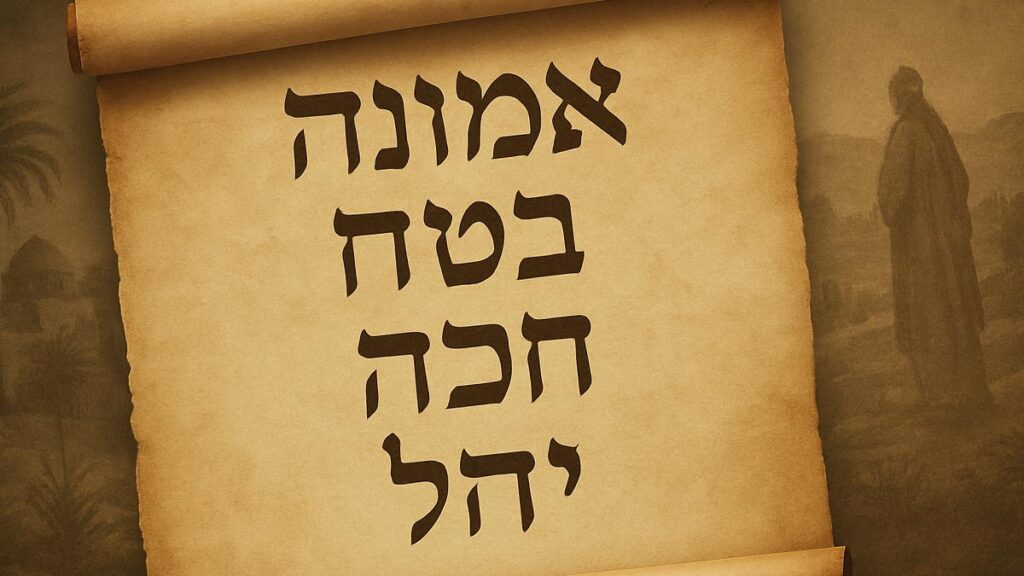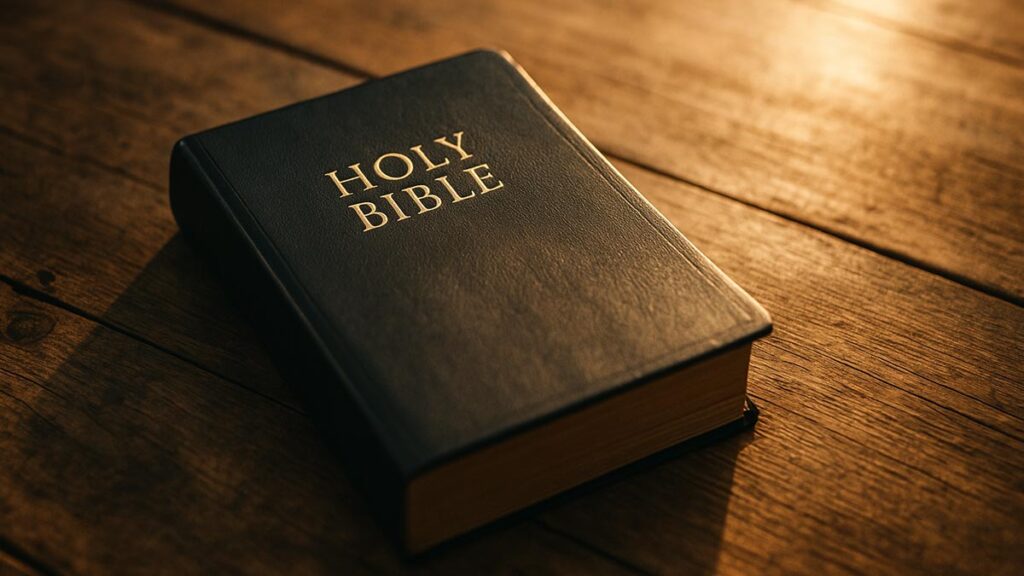When most people think of faith, they imagine a mental exercise—believing something to be true despite uncertainty. But the Hebrew language reveals a richer, action-oriented understanding of faith. Biblical faith was never meant to be passive belief, but rather active trust, lived out in relationship with God.
The Old Testament contains a vibrant vocabulary of faith, each word painting a unique picture of how God’s people related to Him. Unlike later abstract Greek concepts, Hebrew words for faith are concrete, practical, and deeply relational. These words don’t just describe what we think about God—they describe how we live with Him.
The Foundation: Emunah – Steadfast Faithfulness
Emunah (אמונה) is the cornerstone Hebrew word for faith, appearing throughout the Old Testament as the primary expression of trust in God. More than intellectual belief, emunah means faithful steadfastness—a commitment that endures trials and remains loyal despite circumstances.
The root of emunah comes from amen (אמן), meaning “to be firm, to affirm as true.” When we say “amen” at the end of a prayer, we are declaring “I trust this to be true” and “I will act accordingly.”
Scripture illustrates this vividly. In Exodus 17:12, Moses’ hands were described as emunah—steady and reliable as Aaron and Hur supported him during Israel’s battle with Amalek. Likewise, Habakkuk 2:4 declares, “the righteous shall live by his faith (emunah),” a verse Paul later echoes in Romans and Galatians. Emunah here points to faithful perseverance, not mere mental assent.
Trusting Completely: Batach – Leaning Your Full Weight
Batach (בטח) paints the image of leaning one’s entire weight on a sturdy support. It means to trust fully, to depend completely—not just believing God is reliable, but actually relying on Him with one’s whole being.
King David models this in Psalm 13:5: “But I trust (batach) in Your unfailing love; my heart rejoices in Your salvation.” His trust was total dependence, not casual optimism. Scripture also warns against misplaced trust: Deuteronomy 28:52 describes people who batach in fortified walls instead of in God, showing that the object of trust makes all the difference.
Finding Shelter: Chasah – Taking Refuge
Chasah (חסה) means “to seek refuge” or “to flee for protection,” much like a vulnerable animal hiding in a rock cleft. This word is most often found in the Psalms, where God is portrayed as a fortress and safe haven.
David used chasah when fleeing from Saul: “For my soul takes refuge (chasah) in You” (Psalm 57:1). This was not abstract theology but desperate dependence in real danger. Psalm 2:12 extends the imagery messianically: “Blessed are all who take refuge (chasah) in Him.” The word acknowledges human weakness while proclaiming God as our ultimate refuge.
Patient Endurance: Qavah – Binding Together in Hope
Qavah (קוה) carries the idea of “waiting with expectation,” originally used for twisting or binding cords together. This suggests that waiting on the Lord is not idle but active endurance—binding one’s life to God in trust.
Isaiah 40:31 is the classic example: “But those who wait (qavah) on the Lord shall renew their strength; they shall mount up with wings like eagles.” Here, waiting means tethering oneself to God’s promises until His timing is fulfilled. David echoes this in Psalm 40:1: “I waited patiently (qavah) for the Lord; He inclined to me and heard my cry.”
Hope Under Pressure: Yachal – Trusting Through Pain
Yachal (יחל) means “to wait, to hope with endurance,” often in the context of suffering or uncertainty. It reflects choosing trust under pressure, even when circumstances seem unbearable.
Job exemplifies yachal when he says, “Though He slay me, I will hope (yachal) in Him” (Job 13:15). Jeremiah also uses the word amid Jerusalem’s destruction: “But this I call to mind, and therefore I have hope (yachal): The steadfast love of the Lord never ceases” (Lamentations 3:21–22). Yachal represents hope that perseveres through pain, trusting God’s unchanging character.
Living Out Hebrew Faith Today
These Hebrew words reveal that biblical faith is not passive but active. Each dimension contributes to a fuller picture:
- Emunah → steadfast loyalty
- Batach → complete dependence
- Chasah → seeking refuge
- Qavah → patient endurance
- Yachal → hope under pressure
Together, they show that faith is fundamentally relational, covenantal, and lived out. Abraham embodied this when “he believed (he’emin) the Lord, and it was counted to him as righteousness” (Genesis 15:6). His trust was not a one-time decision but an ongoing walk of obedience, even when tested with Isaac on Mount Moriah.
The Hebrew Heart of Faith
The Old Testament teaches that faith is not mere intellectual belief but a life of covenant loyalty. Like a marriage built on mutual faithfulness, biblical faith calls us to daily allegiance, expressed in obedience, endurance, and hope. These Hebrew words invite us into that same faith—active, lived trust in the God who is always faithful.
Hebrew words covered: Emunah (אמונה – faithfulness), Batach (בטח – trust), Chasah (חסה – refuge), Qavah (קוה – wait/hope), Yachal (יחל – enduring hope)


